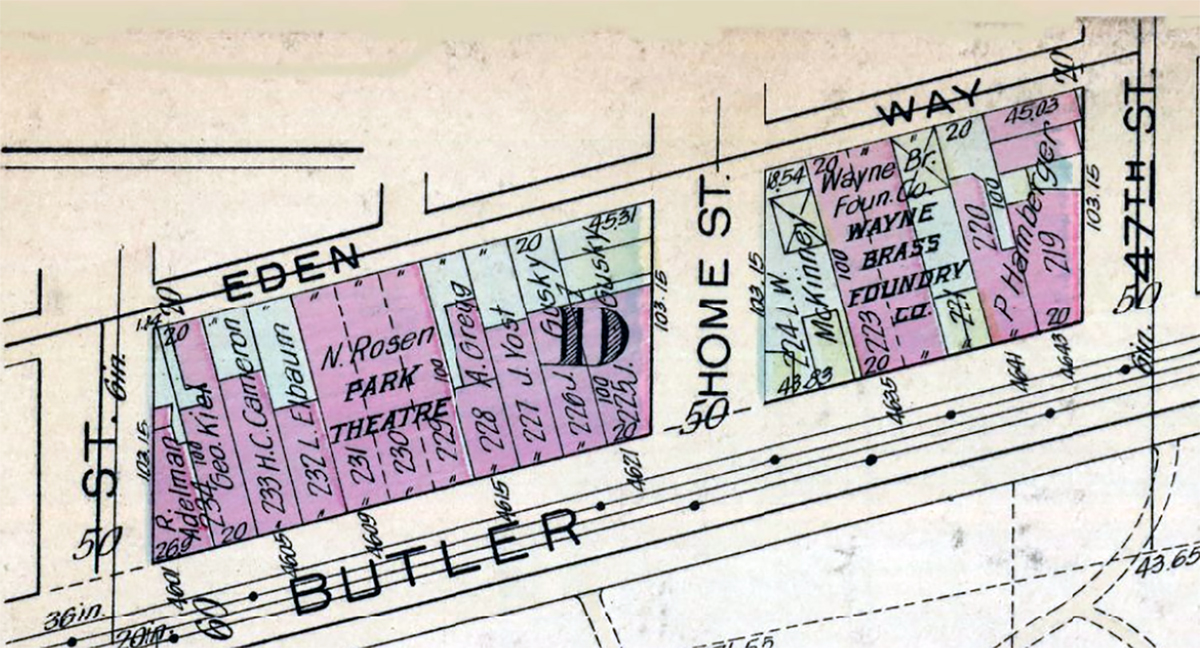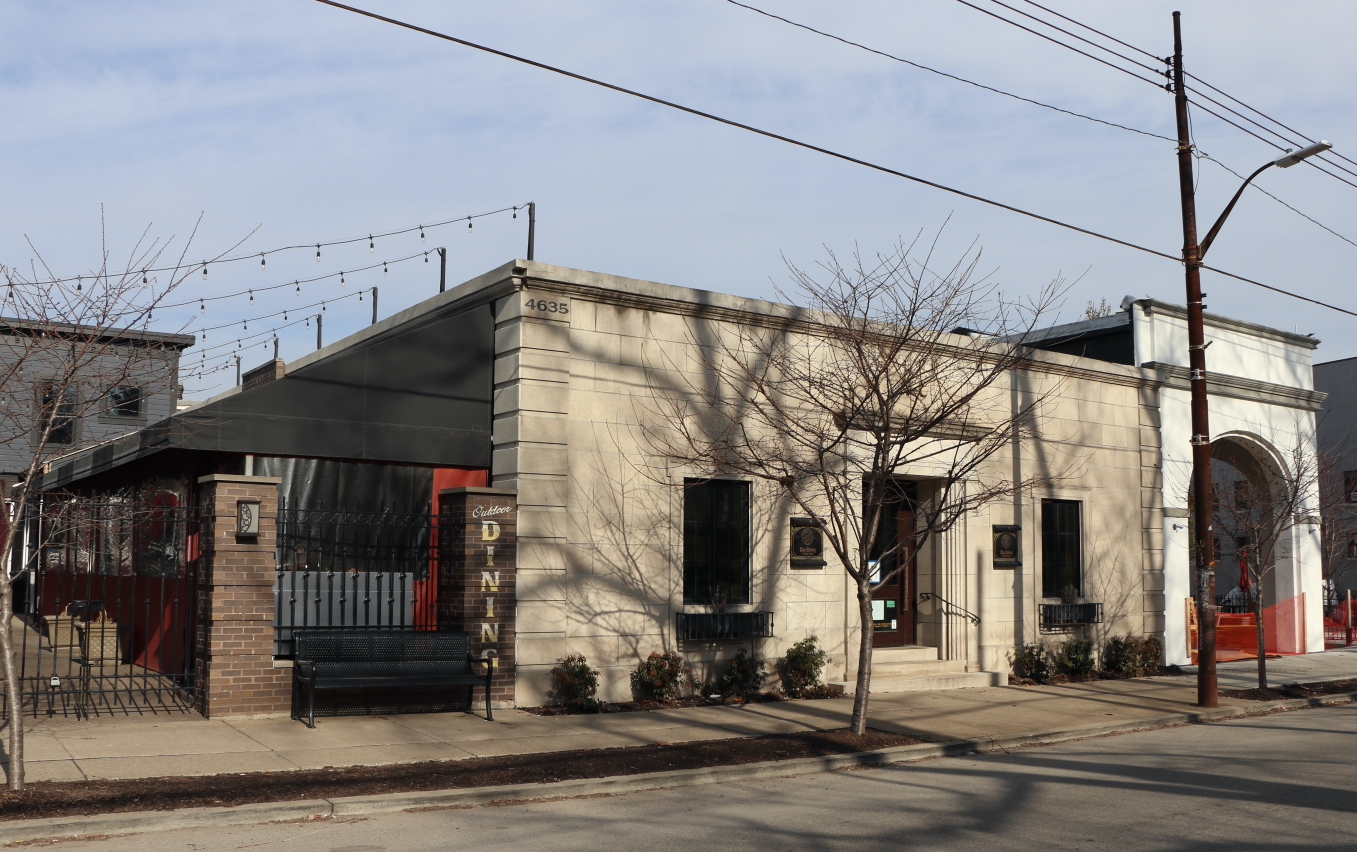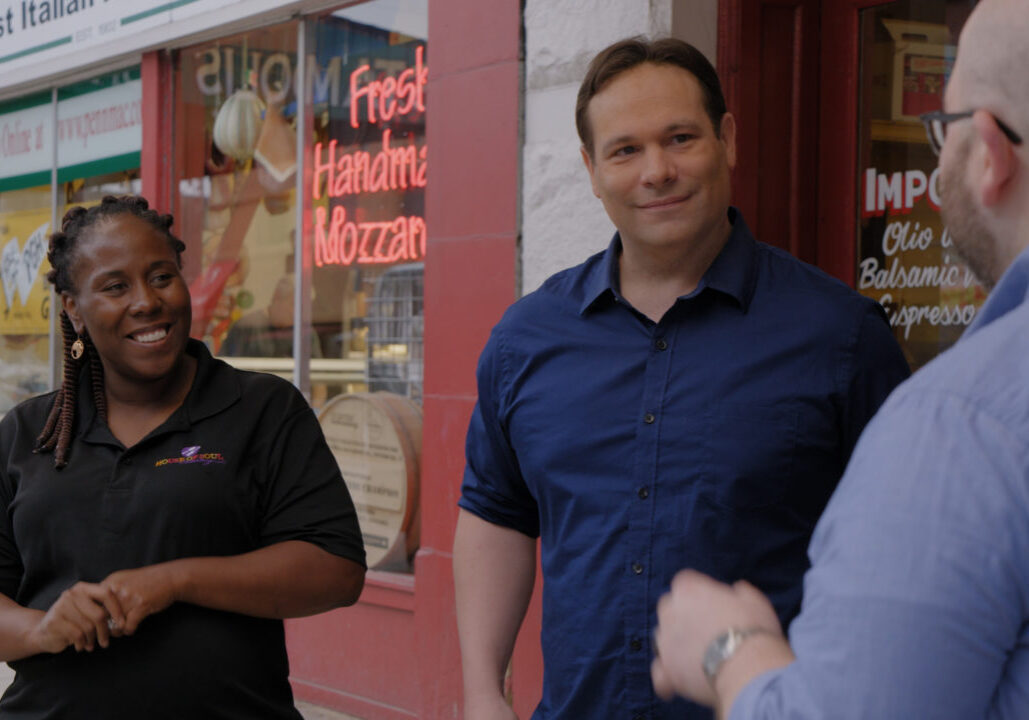People have been dying to get into a Lawrenceville building for more than 100 years.
The Abbey on Butler Street is a popular eatery and bar housed inside a century-old building with a long history. The property is across the street and steps away from the entrance to Allegheny Cemetery.
In the years around the turn of the twentieth century, the lots now occupied by The Abbey were used as a stone workshop owned by Frank J. Boyle. The business specialized in granite and marble — not a big surprise considering the cemetery across the street.
Boyle sold the property after 1906 to the Wayne Brass Foundry, which built a one-story brick building at 4635 Butler St. The metal-working business specialized in brass, bronze, and aluminum castings. The business remained open there for about 25 years, according to historical maps and newspaper articles.

A Lawrenceville Family Business
In the 1930s, Albert and Maria Henninger opened a funeral home in the 4700 block of Butler Street and in 1940 they expanded to the former brass foundry site. Albert Henninger was born in 1896. He served in World War I and became an undertaker. He married Marie Lutz, who had previously worked as a stenographer. They owned and operated the Albert B. and Marie J. Henninger Funeral Home.
After retiring, the Henningers sold the business and the property to Marie’s brother, Verner G. Lutz, in the 1980s. Lutz went into the mortuary business after World War II and after working as a machinist. In the 1960s, he owned two Lawrenceville funeral parlors, one of them located in Stephen Foster’s former home on Penn Avenue.
Lutz operated the former Henninger funeral home with a partner, Richard Beinhauer, until 2003. “My dad actually acquired that funeral home location and that business from Vernon Lutz,” explained Scott Beinhauer, Director of Funeral Operations for Beinhauer Family Funeral Homes and Cremation Services. “I don’t know that he had a successor for the family business and I’m sure that there was some contact made with my family and with my father and ultimately my dad and our family acquired that location.”
Also in the 1980s, the Beinhauers, who had been in the mortuary business in Pittsburgh since 1860, were expanding. Scott Beinhauer, a sixth-generation funeral professional, said that they opened a large modern facility in McMurray.
“We ran it as the Beinhauer-Lutz location for many years and then the location actually changed hands and became Good Funeral Home and Cremation Service,” Beinhauer said. His father was a partner in that business.
Beinhauer recalled that the Lawrenceville location was a gem. “That location, from what I recall, had some beautiful stained glass and some antique-type items that really kind of added to the overall décor of that facility,” he said.
A Building and Neighborhood Reborn
But, Lawrenceville was a neighborhood in transition. Back in the 1980s and 1990s, it wasn’t full of trendy bars and restaurants and its streets weren’t filled with young professionals and artists. “Lawrenceville back then was a much different community than it is now,” Beinhauer said.
“Lawrenceville is now a flourishing community and they’ve really done a great job with reestablishing and refurbishing that entire area and have really made it very attractive to people.”
The Abbey’s founders approached the Beinhauers with an offer to buy the property in 2013. At the time, newspapers reported that plans were in the works for a new church-themed bar called The Abbey. The plans included creating a bar, coffeehouse, deli, and restaurant modeled after a Los Angeles joint with the same name.
The Abbey on Butler Street
The Abbey opened in 2016 after protracted battles with the City over zoning issues and street trees, owner Eric Kukura wrote in a 2021 letter to City Paper. The Lawrenceville Corporation, a community development corporation active in the neighborhood, enthusiastically supported the new business.
Though the building never operated as a church, Kukura and his partner Chris McAleer exploited the limestone veneer installed by the funeral home to create an interior space to match the name. In 2016, McAleer told a Pittsburgh food blog that they had church pews and stained windows specially made for the business and they bought a “big rose window” that had been salvaged from a church.
Beinhauer credits the Abbey’s owners with contributing to Lawrenceville’s transformation in recent years. Though he hasn’t yet been inside The Abbey, he has admired it and the upgraded neighborhood while driving by.
“It’s just a really neat area,” Beinhauer said. “You know, driving through Lawrenceville now as compared to the mid-to-late eighties, early nineties, you know it’s like night and day.”








